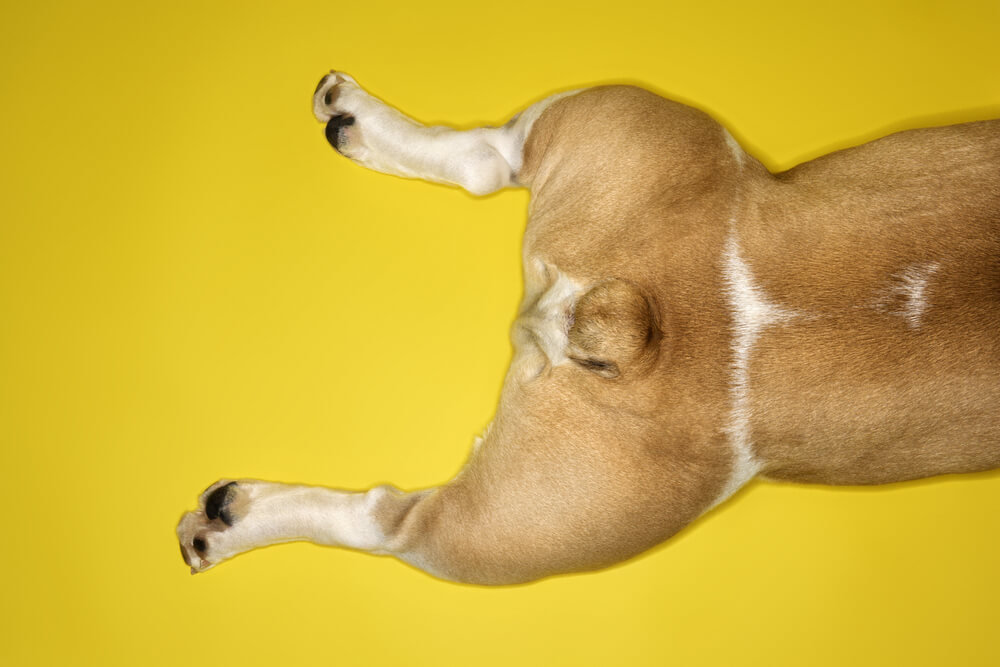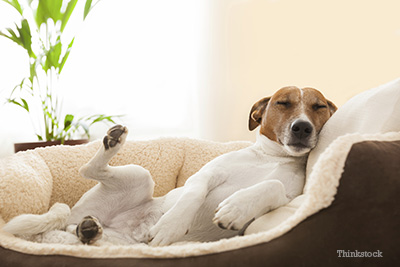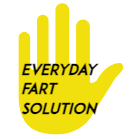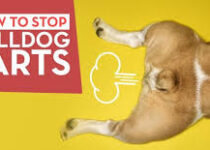Why do my dogs farts smell so bad?
Why do my dogs farts smell so bad?
Have you ever noticed just how potent your dog’s farts can be, sometimes even clearing the room? While flatulence is normal in dogs, those intense odors can be more than a minor annoyance.
The smell is often caused by a mix of factors, including diet, digestive health, and individual sensitivity to certain ingredients.
Just like humans, dogs can experience gas buildup, but certain foods and conditions can make the odor particularly foul.
Understanding why your dog’s farts smell so bad can help you make better dietary and health choices to reduce the intensity of their gas.
Here, are proteins farts are real?
Is it normal for my dog’s farts to smell so bad?
Why do my dogs farts smell so bad?
Yes, it’s normal for your dog’s farts to smell, but especially bad odors can sometimes signal specific issues. Just like humans, dogs produce gas naturally as part of digestion.

However, certain factors make the smell stronger. For instance, diets rich in protein, fatty foods, or specific ingredients like soy, dairy, or grains can increase odor. Some dogs have difficulty digesting certain foods, leading to more intense gas. Additionally, if your dog eats too quickly, they may swallow extra air, which can also cause excess gas.
While occasional stinky farts are normal, extremely foul-smelling gas, particularly if frequent or accompanied by other symptoms like diarrhea, vomiting, or a change in appetite, could indicate digestive problems or food intolerances.
In these cases, consulting a veterinarian can help identify the underlying cause and adjust your dog’s diet or treatment to improve their digestion and reduce the odor.
What food is good for gassy dogs?
Why do my dogs farts smell so bad?
For gassy dogs, choosing foods that are easy to digest and made from quality ingredients can help reduce gas.
Look for dog food with limited ingredients, avoiding fillers like corn, wheat, or soy, which can be hard for dogs to digest and often lead to more gas.
Here, can a fart give you pink eyes?
High-quality protein sources, such as chicken, turkey, or fish, can be easier on their stomachs compared to fatty or processed meats. Additionally, foods with easily digestible carbs, like sweet potatoes and rice, are gentle on the digestive system.
Probiotics, either added to the food or as a supplement, can improve gut health and reduce gas by promoting balanced bacteria. Fiber from natural sources, like pumpkin or certain vegetables, can also aid digestion.
Avoid feeding your dog table scraps or foods high in fat, as these can exacerbate gas. Consulting with a veterinarian can further help you choose the best diet for your gassy dog.
Why does my dog smell like rotten eggs?
Why do my dogs farts smell so bad?
If your dog smells like rotten eggs, it’s usually due to sulfur compounds produced in their digestive system, often from gas or dietary issues.
Foods that are rich in sulfur, like certain meats, dairy, or foods with fillers like soy and grains, can cause this odor during digestion. When these foods break down, they release hydrogen sulfide—a gas that smells like rotten eggs.
Swallowing too much air while eating quickly or a sensitivity to specific ingredients can also lead to more sulfuric-smelling gas. In some cases, this odor can result from digestive issues like food intolerances, an imbalance in gut bacteria, or even a mild gastrointestinal infection.
If the smell is persistent, it’s best to consult a veterinarian. They may recommend dietary changes, probiotics, or further tests to identify any underlying health issues, ensuring your dog’s digestive health is in balance and reducing that strong sulfur odor.
Should I be worried if my dog is gassy?
Why do my dogs farts smell so bad?
Occasional gas in dogs is normal, especially if they’ve eaten something new or had a treat that’s harder to digest.
However, if your dog’s gas is frequent, has a strong odor, or is accompanied by other symptoms like diarrhea, vomiting, or loss of appetite, it could indicate an underlying issue.
Dietary factors, such as low-quality food or an intolerance to ingredients like dairy, soy, or certain grains, often cause excessive gas. Eating too quickly and swallowing air can also contribute to this.
Persistent or particularly foul-smelling gas might be a sign of digestive problems, food allergies, or gastrointestinal conditions, including infections or inflammation.
In these cases, consulting a veterinarian is a good idea. They can help determine the cause of the gas, recommend dietary changes, or suggest treatments to support your dog’s digestive health, making them more comfortable and reducing gas episodes.
Why do my dogs farts smell so bad?
Why do my dogs farts smell so bad?
If your dog’s farts smell unusually bad, it’s usually due to diet, digestion, or individual sensitivities. Foods rich in protein, fat, or certain ingredients—like dairy, grains, or soy—can cause gas that smells stronger, as these foods are harder to digest.
Here, can a fart give you pink eyes?
When they break down, they produce sulfur compounds, which are notorious for their rotten egg odor. Dogs with sensitive stomachs or food intolerances can also experience extra smelly gas if their digestive system struggles with specific ingredients.
Swallowing too much air while eating quickly or eating foods high in fiber can also lead to more intense flatulence. While occasional foul-smelling gas is normal, particularly frequent or strong odors can sometimes signal an underlying issue, like gastrointestinal problems or imbalances in gut bacteria.
If the smell is persistent or accompanied by symptoms like diarrhea or changes in appetite, it’s wise to consult a veterinarian to rule out health concerns.
9 Reasons why do dogs farts smell so bad
Why do my dogs farts smell so bad?
1. Diet and Ingredients
A dog’s diet is one of the most common causes of foul-smelling farts. Foods rich in sulfur-containing ingredients, such as eggs, meat, and certain vegetables like broccoli or cabbage, can lead to more pungent gas.

Similarly, foods that are hard to digest or filled with fillers like soy, corn, or wheat can cause excessive gas production. When the body breaks down proteins, fats, and fibers, it produces gases like hydrogen sulfide, which smells like rotten eggs.
If your dog’s food contains too many of these ingredients, it may result in gas that’s particularly strong and unpleasant. Switching to a more digestible, high-quality food with fewer additives and fillers can help reduce the odor.
2. Swallowing Air
Dogs that eat too quickly or gulp down food may swallow extra air, leading to more gas buildup in their digestive tract.
This is especially common in dogs with fast eating habits or those who are given large portions of food in a short amount of time.
The swallowed air can cause bloating and contribute to the foul odor of their farts. To prevent this, try using a slow-feed bowl or smaller portions more frequently.
You can also encourage your dog to eat in a calm, relaxed environment, which can reduce their tendency to gulp air.
3. Food Sensitivities or Allergies
Why do my dogs farts smell so bad?- Here, you’ll see 3 reasons.
Just like humans, dogs can develop food sensitivities or allergies, which may cause their digestive system to react with excessive gas and strong odors. Common allergens include dairy, gluten, soy, and certain grains.
If your dog has an intolerance or sensitivity to one of these ingredients, it can result in an upset stomach, bloating, and smelly farts. In some cases, food allergies can lead to more serious gastrointestinal issues, such as diarrhea, vomiting, or discomfort.
Here, do chickens fart?
If you suspect a food intolerance, consult your vet to determine the best course of action, which may include an elimination diet or a switch to hypoallergenic dog food.
4. Poor Digestion
Some dogs have naturally sensitive stomachs or digestive systems that aren’t as effective at breaking down food. This can lead to more gas being produced as undigested food ferments in the intestines.
In particular, high-fiber foods can be harder to digest for certain dogs, leading to an increase in gas production.
If your dog has a history of digestive issues, such as constipation or diarrhea, this could also contribute to the frequency and smell of their farts. A veterinarian may recommend digestive aids or enzymes to help your dog process food more efficiently and reduce the odor of their gas.
5. Bacterial Imbalance
A healthy gut relies on a balanced population of beneficial bacteria to break down food. If this balance is disrupted, it can lead to excessive gas production and smelly farts.
Bacterial overgrowth, or an imbalance of gut microbiota, can occur for various reasons, such as antibiotic use, poor diet, or gastrointestinal disease. When harmful bacteria outnumber the good ones, they may ferment food more aggressively, creating foul-smelling gases like methane or hydrogen sulfide.
Probiotics or a change in diet may help restore this balance, improving your dog’s digestion and reducing the intensity of their flatulence.
6. Parasites or Infections
Intestinal parasites like worms or infections caused by bacteria, viruses, or fungi can cause serious gastrointestinal issues in dogs, including smelly farts.

These parasites disrupt the digestive process, leading to increased gas production, bloating, diarrhea, and foul odors.
If your dog has a parasitic infection or an upset gut, their digestive system may not break down food properly, resulting in unpleasant odors. If you notice your dog has diarrhea, vomiting, weight loss, or other unusual symptoms alongside smelly gas, it’s important to take them to the vet for a proper diagnosis and treatment plan.
7. Eating Table Scraps or Human Food
Feeding your dog table scraps or human food can lead to more intense and smelly gas. Many human foods—especially fatty or greasy dishes, spicy meals, and rich snacks—are not suitable for a dog’s digestive system.
These foods can upset your dog’s stomach, leading to bloating, discomfort, and foul-smelling gas. Some human foods, such as chocolate, onions, and grapes, can even be toxic to dogs. To avoid digestive problems and bad gas, it’s best to stick to a well-balanced dog food diet and avoid sharing human meals with your pet.
8. Low-Quality Dog Food
Low-quality dog food often contains fillers, artificial preservatives, and low-grade proteins that are harder for dogs to digest.
Here, how do you say far in Spanish?
These ingredients can lead to excessive fermentation in the digestive tract, resulting in smelly gas. Additionally, low-quality food may not provide the necessary nutrients for optimal gut health, further exacerbating digestive issues.
If your dog is eating poor-quality food, they may experience bloating, discomfort, and foul-smelling farts. Switching to a high-quality, easily digestible dog food with high protein content and fewer fillers can help reduce the odor and improve your dog’s overall digestive health.
9. Health Conditions
Certain health conditions, such as inflammatory bowel disease (IBD), pancreatitis, or gastrointestinal disorders, can lead to chronic smelly gas in dogs.
These conditions interfere with the digestive process, causing poor nutrient absorption and increased gas production. Inflammatory bowel disease, for example, causes inflammation in the intestines, which can lead to bloating and smelly farts.
If your dog’s gas is persistent and accompanied by other symptoms like weight loss, vomiting, or diarrhea, it’s essential to visit your vet for a full evaluation. They can diagnose any underlying health conditions and help manage your dog’s symptoms.
7 Tips to help your dog fart smell good
Why do my dogs farts smell so bad?- Here you’ll see 7 tips now.
1. Switch to a High-Quality, Easily Digestible Food
Feeding your dog high-quality food with easily digestible ingredients can help reduce smelly gas. Look for dog food that lists high-quality proteins and avoids fillers like corn, soy, or artificial additives. Foods rich in fiber, such as sweet potatoes and pumpkin, can aid digestion and help reduce gas production. Additionally, consider food designed to support digestive health, such as those containing probiotics or prebiotics. A healthy diet ensures that your dog’s digestive system works efficiently, resulting in less smelly flatulence.
2. Add Probiotics to Their Diet
Probiotics are beneficial bacteria that help regulate your dog’s digestive system, balancing the gut microbiota. When your dog’s digestive system is in balance, they are less likely to experience excess gas or strong-smelling farts. Adding probiotic-rich foods, like plain yogurt, or a probiotic supplement specifically formulated for dogs can improve gut health and reduce unpleasant odors. Consult your vet to choose the best probiotic option for your dog’s needs.
3. Feed Smaller, More Frequent Meals
Feeding your dog smaller portions throughout the day instead of one large meal can help reduce gas and bloating. When dogs eat too quickly or consume large portions, they tend to swallow air, which can lead to excessive gas and foul odors. Dividing meals into smaller, more frequent servings allows their digestive system to process food more effectively, reducing the likelihood of smelly farts. You can also use a slow-feed bowl to encourage slower eating and prevent gulping of air.
4. Avoid Table Scraps and Human Food
Feeding your dog table scraps or human food can introduce ingredients that are difficult for them to digest, leading to more gas and bad-smelling farts. Foods like spicy dishes, fatty foods, dairy, and certain vegetables (e.g., beans, cabbage) can upset their stomachs and result in unpleasant odors. Stick to dog-safe treats and avoid giving them foods that may cause gastrointestinal issues. By limiting their exposure to inappropriate foods, you help maintain a healthier digestive system and reduce stinky gas.
Here, how to make someone fatr while sleeping?
5. Increase Their Exercise and Activity Level
Regular exercise promotes healthy digestion and helps prevent the buildup of excess gas. Physical activity encourages the movement of food through the digestive tract, reducing bloating and promoting a more efficient breakdown of nutrients. A dog that gets regular exercise is less likely to experience digestive discomfort, which can contribute to bad-smelling farts. Take your dog on regular walks or engage them in active play to keep their digestive system functioning properly.
6. Introduce Digestive Enzymes
Digestive enzymes can help your dog better process food, leading to less gas and improved digestion. These enzymes assist in breaking down proteins, fats, and carbohydrates, making it easier for the digestive system to absorb nutrients and prevent excess fermentation in the intestines. Adding digestive enzyme supplements to your dog’s meals can reduce bloating and help prevent smelly flatulence. Talk to your vet to determine if digestive enzymes are suitable for your dog and to choose the right product for their needs.

7. Regular Vet Check-ups
Regular vet visits can help identify any underlying health issues contributing to your dog’s stinky gas. Conditions such as food allergies, gastrointestinal disorders, or parasites can lead to excessive or foul-smelling flatulence. A veterinarian can recommend dietary changes, medications, or treatments to address these issues and improve your dog’s digestive health. If your dog’s gas suddenly becomes more frequent or particularly foul-smelling, a vet check-up is essential to rule out any serious health concerns and ensure your dog is healthy overall.
Related faq’s
Dog farts smell like death
If your dog’s farts smell like death, it’s likely due to a buildup of sulfur compounds, such as hydrogen sulfide, which are released when certain foods are digested.
Diets rich in protein, fats, or ingredients like eggs, cabbage, and beans can contribute to this foul odor. Additionally, if your dog has a sensitive stomach or digestive issues, it can result in more intense, unpleasant gas.
Parasites, food intolerances, or gastrointestinal imbalances can also cause particularly smelly farts. If the odor is persistent and accompanied by other symptoms like vomiting or diarrhea, it’s best to consult a veterinarian for advice.
Why do my dog’s farts smell so bad all of a sudden
If your dog’s farts suddenly smell much worse, it could be due to a recent change in diet, food intolerance, or digestive issues.
New ingredients, treats, or a sudden switch in food can upset their stomach and lead to more pungent gas. Additionally, gastrointestinal issues like bacterial imbalances, food sensitivities, or infections can cause foul-smelling gas.
If the smell is persistent or accompanied by symptoms like diarrhea, vomiting, or loss of appetite, it could indicate an underlying health problem. In such cases, consulting a veterinarian is important to rule out any serious conditions and find the cause.
My dog has bad gas what can I give him
If your dog has bad gas, there are a few things you can try to alleviate the issue. First, ensure your dog is eating a high-quality, easily digestible diet with limited fillers.
Foods with probiotics, like plain yogurt or specific probiotic supplements, can help improve gut health and reduce gas. Smaller, more frequent meals can also prevent them from swallowing air while eating.
If your dog’s gas is caused by food intolerances, consider switching to a hypoallergenic diet or avoiding known triggers. For persistent or severe gas, consult a veterinarian to rule out any underlying health issues.
Why does my dogs farts smell like rotten eggs?
If your dog’s farts smell like rotten eggs, it’s usually due to the production of hydrogen sulfide, a gas created when certain foods break down in the digestive system. Foods rich in sulfur, like eggs, meat, and certain vegetables (e.g., broccoli, cabbage), are common culprits.
Additionally, if your dog has trouble digesting certain ingredients or has food sensitivities, it can lead to more intense, foul-smelling gas.
Digestive issues, such as bacterial imbalances or gastrointestinal conditions, can also contribute to this odor. If the smell is persistent, consult a veterinarian to rule out any underlying health problems.
Why do my dogs farts smell so bad after
If your dog’s farts smell particularly bad after eating, it could be due to the food they’ve consumed. Rich, sulfur-containing ingredients like meat, eggs, or certain vegetables can lead to foul-smelling gas.
Foods that are harder to digest or cause food sensitivities, such as dairy, wheat, or soy, can also cause excess gas with a strong odor. Eating too quickly can cause your dog to swallow air, contributing to bloating and stinky gas.
If the bad smell is frequent or accompanied by other symptoms like diarrhea or vomiting, it’s best to consult a vet for advice.
Why do my dogs farts smell so bad all of
If your dog’s farts suddenly smell much worse all of a sudden, it could be due to changes in their diet, digestive issues, or food sensitivities.
A new food or treat, especially one rich in sulfur (like eggs or meat), can cause foul-smelling gas. Food intolerances or gastrointestinal issues, such as bacterial imbalances or inflammation, can also lead to more pungent gas.
Additionally, dogs that eat too quickly or have sensitive stomachs may experience worse-smelling farts. If the gas is persistent or accompanied by symptoms like diarrhea, vomiting, or lethargy, consult a veterinarian for further evaluation.
How to stop stinky dog farts
To stop stinky dog farts, start by improving your dog’s diet. Switch to a high-quality, easily digestible food with minimal fillers like corn and soy. Avoid feeding them table scraps, fatty foods, or ingredients that may cause gas, such as dairy or beans.
Use slow-feed bowls to prevent gulping air while eating, and offer smaller, more frequent meals. Adding probiotics or digestive enzymes to their food can help improve gut health and reduce gas.
Regular exercise also supports healthy digestion. If the smell persists or is accompanied by other symptoms, consult a veterinarian for a thorough check-up.
Dog farts smell like sewage
If your dog’s farts smell like sewage, it’s likely due to a digestive issue, often caused by a diet high in sulfur-rich foods like meat, eggs, and certain vegetables.
These foods can lead to the production of hydrogen sulfide, which has a rotten odor. Other possible causes include food intolerances, gastrointestinal imbalances, or infections, which can result in improper digestion and foul-smelling gas.
If your dog’s gas is accompanied by other symptoms like diarrhea, vomiting, or lethargy, it’s important to consult a veterinarian to rule out underlying health problems and improve their digestive health.
Conclusion
In conclusion, bad-smelling dog farts are typically caused by a combination of factors, including diet, digestion, and health issues.
Foods rich in sulfur, like meat, eggs, and certain vegetables, can produce foul-smelling gas. Food intolerances, gastrointestinal imbalances, or digestive disorders may also lead to stronger odors. Additionally, fast eating, poor-quality food, or parasites can contribute to the problem.
While occasional smelly gas is normal, persistent or unusually foul odors may indicate an underlying health issue. If your dog’s flatulence is accompanied by other symptoms, consulting a veterinarian is crucial to ensure their digestive health is properly managed.



